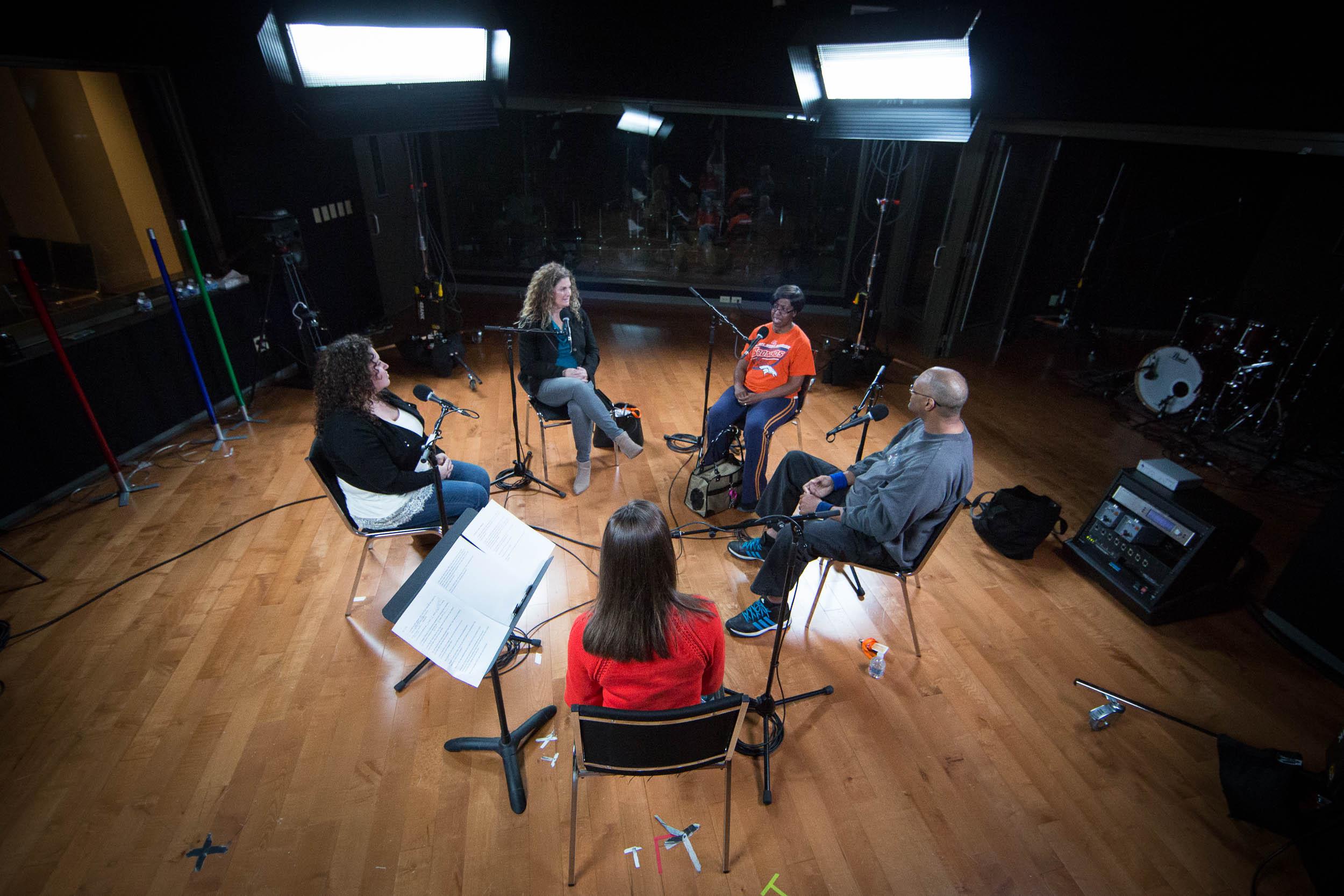
More than two thirds of kids in the U.S. have their own smartphone by the time they’re teenagers. For parents, giving advice and laying down rules can be murky waters to navigate.
We invited a group of parents in for a conversation with Colorado Public Radio this week about how they talk with their teens about phones. While the parents talked, their kids listened outside the studio. Then we invited the teenagers to discuss their phones — what they enjoy and what concerns them.
Turns out, it’s not just parents worried about their kids’ phone use. Teens wish their parents were less distracted, too.
These are select moments from both conversations. They have been condensed and edited for clarity.
The rules the parents in the group enforce vary, but they found common ground on having phones for safety.
The parents who came in and talked to us:
Chérie Garcia, who has a college-aged son and a 13-year-old daughter. Her kids have flip phones until college. No smartphones. No social media. With her older son, who is now in college and has an iPhone, she said it was a constant source of conflict, but she was committed to minimizing distractions.
Meggan Macias, a physician assistant who specializes in pediatric and adolescent medicine. She has twins in college and a 16-year-old son, who has had a smartphone since middle school.
Zuton Lucero-Mills, a mother of 12 children, ages 8 to 31, the youngest of whom just got a cell phone.
And Stan Mills, Lucero-Mills' husband.
Lucero-Mills: (Jokingly) There is so much to this whole parenting thing, and if I had been told that these little people would have cell phones… I might have reconsidered.
Garcia, whose kids don't get smartphones until college: We go to social events, and they're not buried in their phone. It's not a means of escaping for them because they don't have that option. When they're in school, there's not the temptation of checking their phone, looking up apps and not paying attention in the classroom.
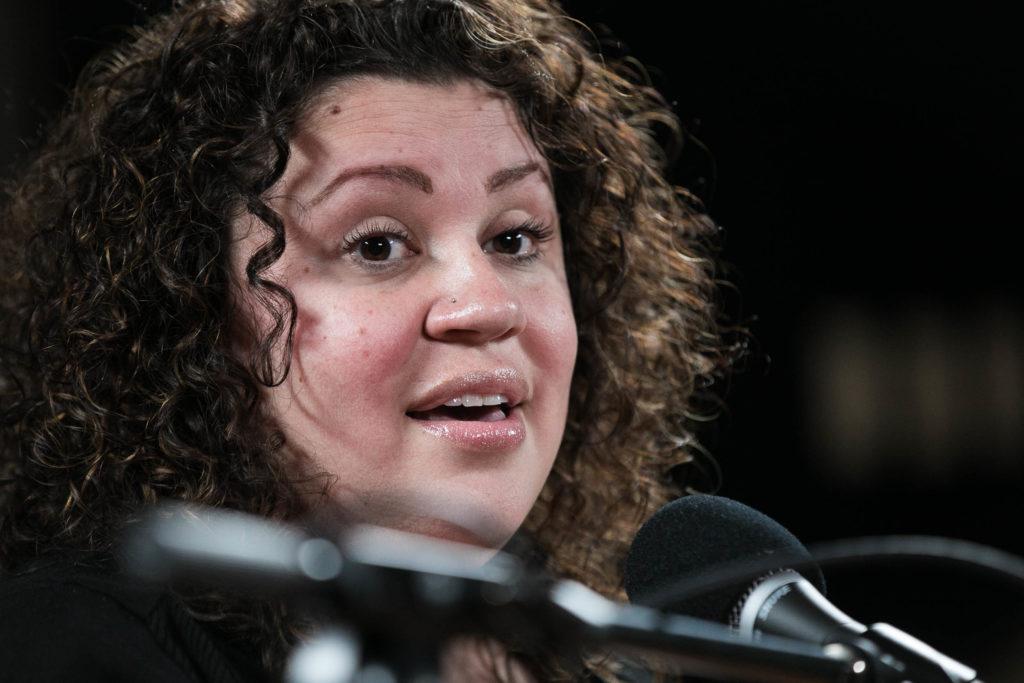
Macias: Do you feel like [smartphones are] a rite of passage, or is it just all of the possible pitfalls that you’d like to avoid by not introducing it before their frontal lobe is more developed?
Garcia: I feel like giving my children something that their brain isn't fully developed to handle is giving them a device that we all know is addicting. I know different kids are different. I have friends who have kids with smartphones, and they're fine. But just for my kids, I felt like giving them a smartphone would be saying, ‘Here's this big responsibility. Figure out how to make it work with your life.’ So for me it was just easier to just not.
Mills: I so appreciate that. It's harder to go back than say, “Oh, I shouldn't have allowed you access to that too soon.”
Macias: For me, I feel that I would rather parent it now while they're in my house and while I can help them along and manage some of those issues while I can hopefully help them be good stewards of their online behavior, help them to manage some of the things that can come up.
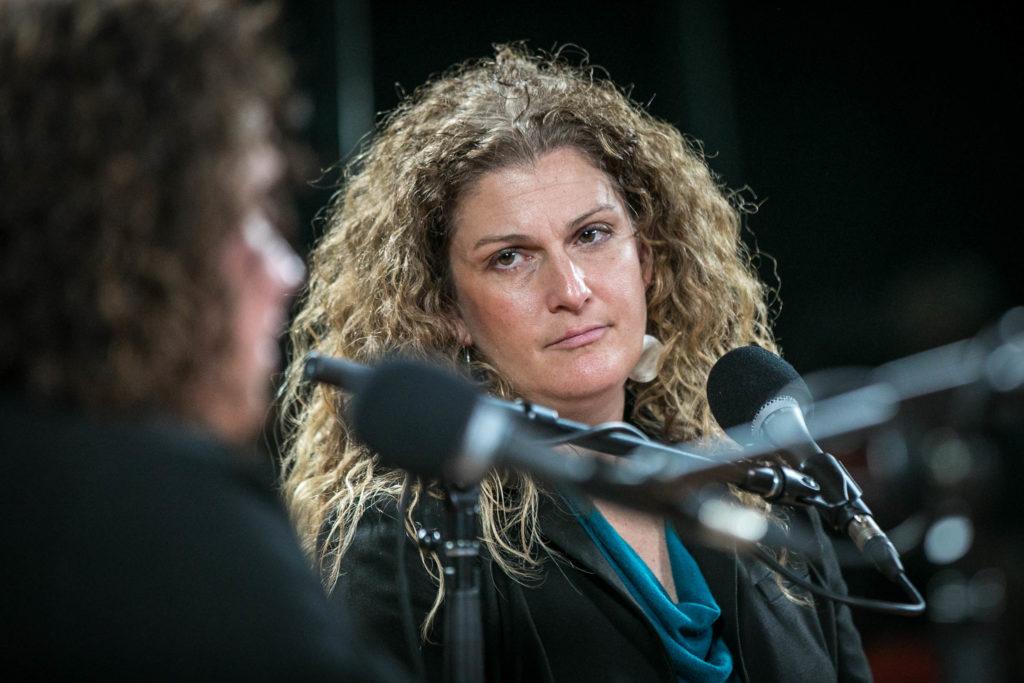
Lucero-Mills: Yeah, I think that’s one of the keys for me, I appreciate the opportunity to be able to directly observe what they're doing and to try to guide their behavior.
All four parents agreed that they want their kids to have cell phones to make sure that they’re safe.
Macias: Location services better be on for ‘Find my iPhone.’ That ensures that they're where they're supposed to be when they say that they're going to be at this place, as well as if there ever an issue, they can find me. I mean, that's the reality. I work in Northeast Denver, and I'm there late, so that goes both ways.
Lucero-Mills: When we talk about safety, health is connected. We have all asthmatic children and we have had emergency situations wherein we needed to get in contact with someone quickly. I would not feel comfortable sending my children off and thinking — they weren't breathing too well when they left, but maybe they'll be okay — without being able to text them in the middle of the day and say, “How's your breathing?” I think that I have gotten much more comfortable with the phones because it's a security blanket in a lot of ways.
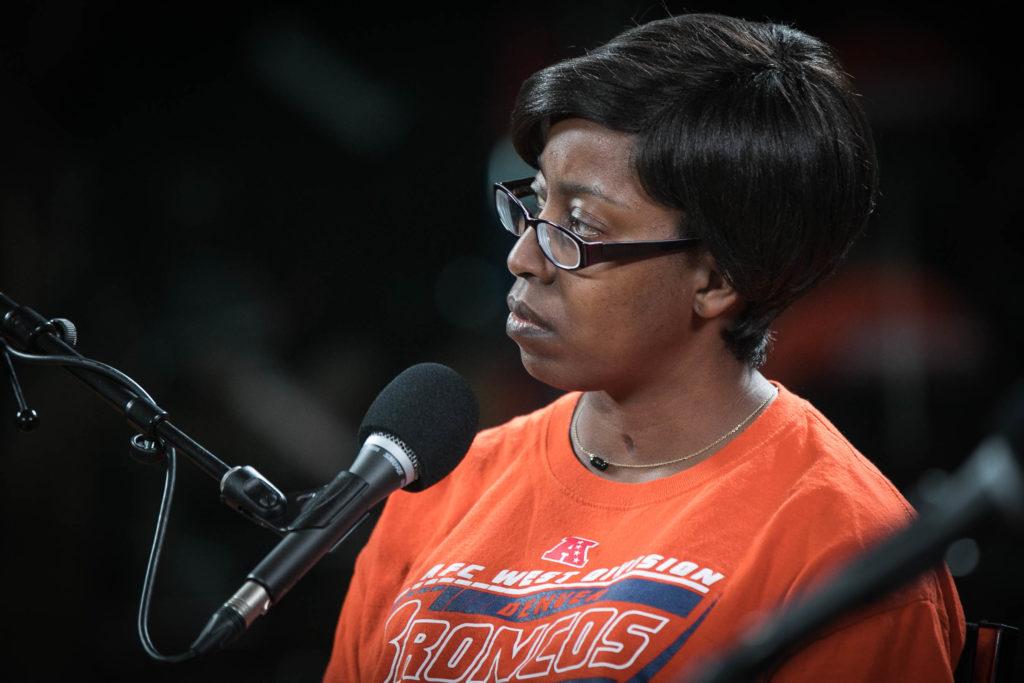
Garcia: I absolutely agree with that. I do think kids having phones is a good thing. My nieces went to Arapahoe High School, and they were there at the time of the shooting. Their phones were how my sister communicated with them. That was my thing for Chloe (her daughter in middle school). She needs to have something. This is in our world, and it's sad that this is the world that our kids live in.
Parents say they're talking to their kids about the social and emotional risks of smartphones.
Mills: When I was a teenager, if you had an issue it, it disappeared quickly because if somebody said you did something, you could deny it and walk out. Now with social media and cameras on everything, everything's blown out of proportion. What we've tried to do is let our kids know that anything you have access to this on this device, we will check that. So I don't know if that helps or hinders us in a way, but it at least it lets them know that we are monitoring at least a little bit of what they're doing and what's going on.
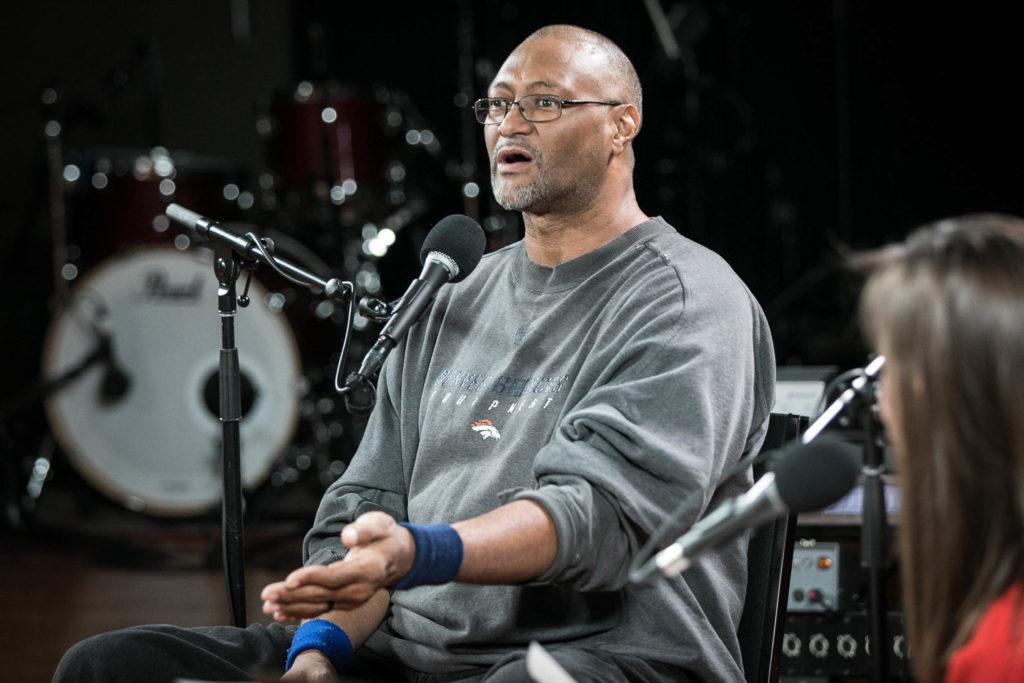
Mills (continued): One of the paradoxes of social media as well is that the kids can get this sense of community and at the same time be totally isolated. How do you deal with that?
Macias: I think that one of the things that has been most helpful in our household is emphasizing from the start that this should neither make you feel better about yourself or worse. Social media, it is neither a place to work out your problems or to solve anybody else's. So we have to have these conversations all the time.
Each of the parents has a smartphone. They graded themselves on their own smartphone use.
Mills: I think the generation I come from, I don't have the same attachment to it. Mainly I have it because I want to make sure my wife and children are able to communicate with me. I would give myself an "A" because I put it down and leave it alone.
Lucero-Mills: I'm going to give myself a "C." I do the relax and chill out on my phone thing. Some days I feel better about that than others.
Macias: Well I'm resourceful. If I'm it's there, I'm going to use it to Amazon Prime shop for a second. I utilize my resources. But I really try to, when I'm with people and having conversations and with my family, engage. I suppose, in terms of being utilitarian, if that's a bad thing, I am a "C+." In terms of making sure that you put it aside when you're with others, I'm a solid "A."
Garcia: I would say now I'm absolutely like a "D." I own my own business, so all my clients, my contractors text me material lists. So I just have to be on it. And I'm like you, when I'm with friends and we're at dinner, it's away. We're talking and having a good time.
Then the parents left the studio and teens took their places.
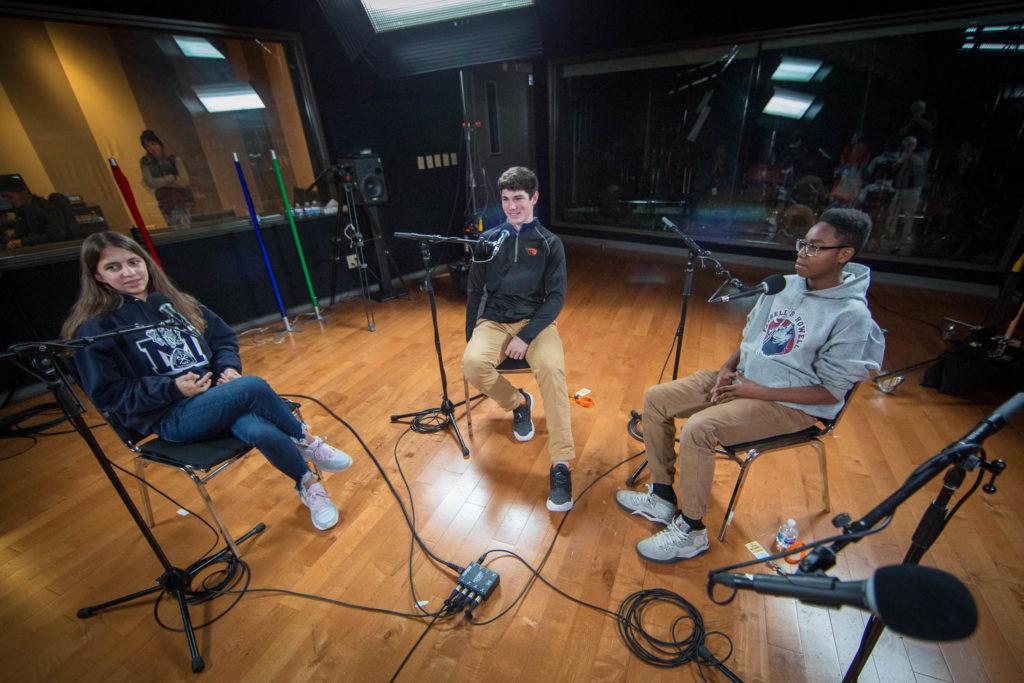
We asked the kids how they feel about their parents' phone use. They didn’t hold back.
Dallas Macias, 16, Regis Jesuit High School: There'll be times where [my mom] will be on her phone and she'll literally be texting someone and I'll ask her a question and then repeat it like two or three more times. The people that she is texting when she's not listening to me is for work and stuff. So I understand that. But, I think that she sometimes gets too much into her phone to where she can't multitask very well.
Elijah Mills, 14, PREP Academy: I agree with him a lot. My parents will sometimes be so locked in. And it's like, I'm trying to talk to you. But then they're always yelling at me, "Get off that phone." I should do the same thing, I really should.
Chloe Lewis, 13, Powell Middle School: I'll come into my mom's office and she won't hear me first when say, "Mom." And I'll be like "Mom, Mom, I'm trying to ask you a question, Mother." I don't really want to talk to her about it because I don't want to be grounded because I'm like, "Mom, can you get on off your phone because you're on it way too much?"
Dallas and Elijah both admitted to getting distracted by their smartphones.
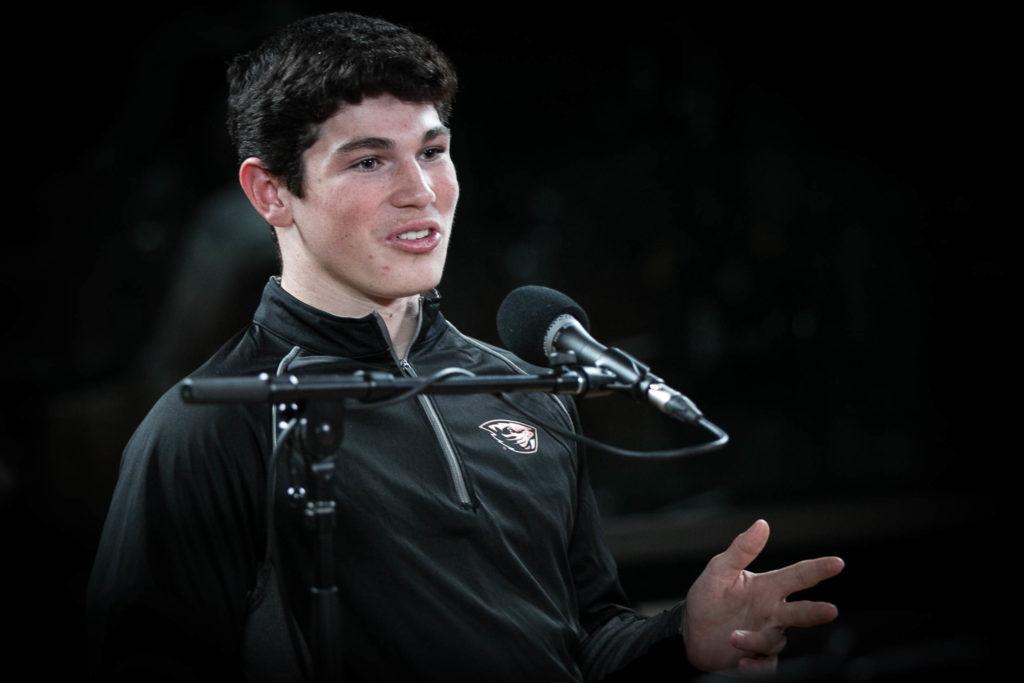
Dallas: I’ll be doing homework and then just check my phone really quick. But then I'll start Snapchatting people, and then I start talking to this person, and then I'll get distracted from what I was doing and then get backed up some more minutes.
Conversations with parents about cell phone rules are a mixed bag.
Elijah, who attends PREP Academy, said sometimes those conversations come at times when he’d rather use his phone to play music and decompress.
“I like hearing [their advice] sometimes just as a reminder, but other times it's like so stressful cause like I got to sit there for a whole lecture.”
But he says his parents’ guidance has helped him navigate dangerous territory.
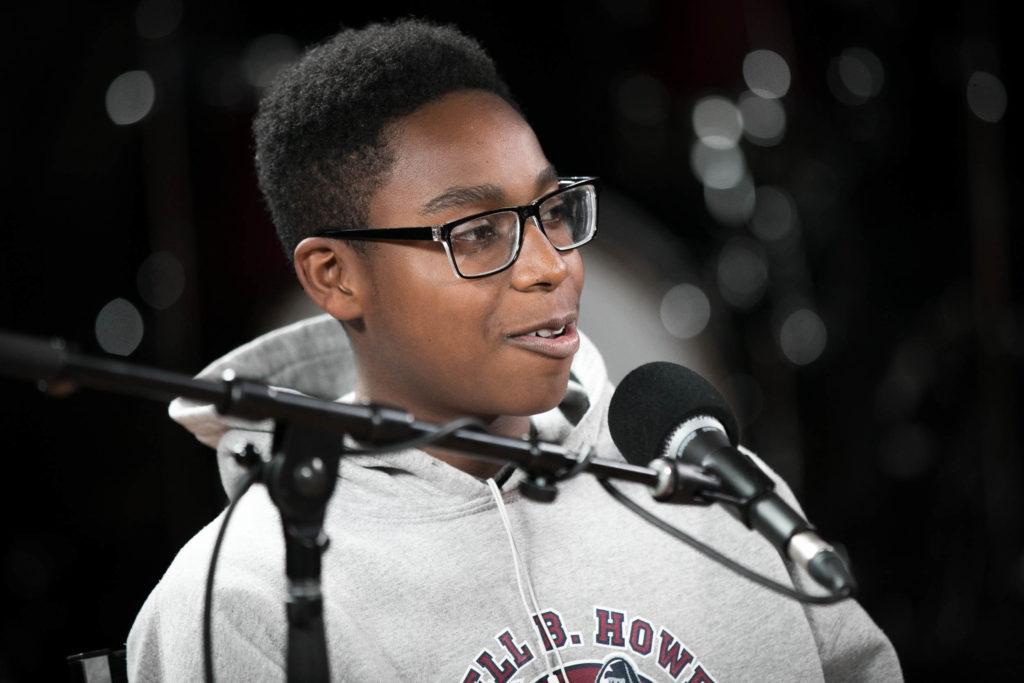
Mills: I’ve got to be real careful about what I post because, some people don't realize it. Like a lot of people on Snapchat, they be posting themselves with guns. Like somebody could really screenshot that and then report it to the police and everything. Now you got a whole case on you and you can, you can try to deny it all you want, but it's still going to be in their photos. Like you may have deleted it, but it's never gone. Like my dad says — it's never gone.
Chloe, a Powell Middle School student, said that not having a smartphone comes with benefits and drawbacks.
She gets left out of some inside jokes with her friends that originate on Facebook or Instagram, but she also feels like she avoids some drama.

Lewis: I've seen some of my friends who got smartphones really early, like in fourth or fifth grade and then since then I've kind of lost contact with them because they don't talk to me anymore because they’re only concerned about what's happening on Snapchat. So with a flip phone, it's definitely nice because, like my mom said you can engage in conversation a lot more and it's not as distracting. But it's also kind of a flex. Sometimes I'll pull it out and I'll like flip up on my phone, and I'm like, "Hey guys, my iPhone 100 is here."










